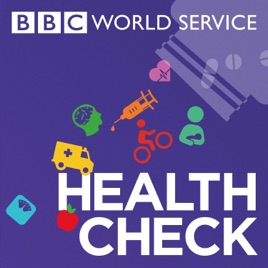
Advertise on podcast: Health Check
Rating
4.7 from
Country
This podcast has
184 episodes
Language
Publisher
Explicit
No
Date created
2007/08/09
Average duration
27 min.
Release period
7 days
Description
Health issues and medical breakthroughs from around the world.
Social media
Check Health Check social media presence
Podcast episodes
Check latest episodes from Health Check podcast
Global Trade v Health Equality
2024/02/21
Research shows that large numbers of Covid deaths could have been prevented if people in low and middle income countries had better access to vaccines. But this week the World Trade Organisation said it could not reach a consensus on waiving intellectual property rights on Covid-19 tests and treatments for poorer countries. Claudia Hammond is joined by BBC Africa health correspondent Dorcas Wangira in Nairobi, to discuss the impact of vaccine inequity on her part of the world.
Dorcas also brings news of a new Ebola study showing that even people vaccinated once they were already infected with Ebola had a substantially lower risk of dying. It suggests that not only does the vaccine help prevent Ebola, it also improves the survival odds of people who have already contracted it.
Oral Rehydration Salts are a lifesaving and inexpensive treatment for diarrhoeal disease, a leading cause of death for children around the world. It is cheap, effective and has been recommended by the World Health Organization for decades - so why is it under-prescribed? That’s a question that researchers at the University of Southern California set out to answer by sending ‘mystery patients’ to thousands of healthcare providers in India. Prof Neeraj Sood tells Claudia what they discovered.
And, a new study suggests that if the fourth digit on the hand of a professional footballer is longer than their second digit, they can metabolise oxygen more efficiently. This comes on the back of previous research about how differences in finger length can be a marker of heart attack and severity of Covid-19. Can you really make predictions about someone’s health based on the way their hand looks?
more
Dengue outbreak in Latin America
2024/02/14
Carnival hits the streets in Rio de Janeiro, Brazil this week. As well as preparations for the crowds and colourful processions, health authorities have also been putting in extra measures to try to contain a huge outbreak of dengue fever. Last week a health emergency was declared in the city. And as Claudia hears from Peruvian health journalist Fabiola Torres, cases are rising to levels not seen for decades across the whole of Latin America.
Consultant in public health Dr Ike Anya is in the Health Check studio to take a deeper look at Dengue. He also brings news from Alaska, USA where an elderly man has become the first person to die from Alaskapox, a viral disease more commonly found in small animals like shrews and voles. And could new UK research on 50,000 people’s blood, help us get one step closer to a predictive blood test for Alzheimer’s disease?
Claudia and Ike hear from British journalist Mike Powell who has serious kidney failure. Last week Mike’s kidney transplant operation had to be cancelled due to his donor’s health. He’s hoping for some better news this week.
And Claudia speaks to Dr Ruth Namazzi at Makerere University in Uganda. She is co-author of new research that suggests that a common drug for treating the symptoms of sickle cell anaemia could have a transformative effect amongst children with the blood condition in Sub-Saharan Africa.
Presenter: Claudia Hammond
Producers: Clare Salisbury & Ben Motley
Assistant Producer: Imaan Moin
more
Getting vaccinations to remote South Sudan
2024/02/07
The hospital in Old Fangak, South Sudan is extremely remote; it’s a place that can only be accessed by boat, using the river Nile. The airstrip has been flooded for the past four years – flooding that has also destroyed crops and drowned cattle. Since April 2023, 501 cases of hepatitis E have been treated at the hospital, and 21 people – mainly women – have died. Now, doctors have launched a vaccination campaign that targets women and girls in communities that are up to eight hours by canoe from the nearest healthcare facility. Matt Fox, Professor of Global Health Epidemiology at Boston University, tells Claudia Hammond about the challenge of distributing vaccinations in such a challenging environment.
Matt also brings news of a study that suggests that up to 10% of patients diagnosed with dementia might actually have cirrhosis of the liver. Cirrhosis can cause cognitive impairment with a very similar presentation to dementia but, crucially, it’s reversible. A study of military veterans in the USA indicates that screening could prevent misdiagnosis.
36% of all human rabies deaths in the world happen in India - 20,000 deaths every year. 97% of these deaths happen through infected dog bites. India has the largest number of stray dogs in the world and also the largest number of stray dog attacks - around 17 million dog bites annually. Chhavi Sachdev reports from Jaipur on an organisation that believes they’re on their way to making the city rabies free.
As Chinese new year is celebrated around the world, we look at a foodstuff that is synonymous with the celebrations – eggs. Minchao Jin is a Clinical Associate Professor at NYU Silver School of Social Work in Shanghai, and he tells Claudia about his work assessing whether a hard-boiled egg a day can help the nutrition of schoolchildren in poor, rural parts of China.
And it’s a frustrating week for journalist Mike Powell as he continues his journey towards a kidney transplant.
Presenter: Claudia Hammond
Producer: Ben Motley
more
Surviving Noma disease
2024/01/31
There are neglected tropical diseases, and then there is Noma, a severe gangrenous disease which tends to affect 2 to 6-year-olds and has a 90% fatality rate. Its quick onset means that often children die before they can get medical attention and it is thought that many medical professionals don’t even get taught about early symptoms. Claudia meets Fidel Strub, originally from Burkina Faso who survived Noma to ask about the impact on his life. This week the first meeting of an international group of researchers working to improve awareness and treatment of the disease is taking place. South African epidemiologist Dr Elise Farley explains why more research is desperately needed.
Family doctor Dr Ann Robinson brings promising news for treatment of another tropical disease, Nipah virus. The first-in-human vaccine trial has begun in the UK. And new research into the effectiveness of testosterone treatment in men.
Journalist Mike Powell updates Health Check as he continues his journey to kidney transplant. And a charity in Northern Ireland which is using a virtual reality experience to give seeing family members a better understanding of what it’s like to live with visual impairment.
Presenter: Claudia Hammond
Producer: Clare Salisbury
Assistant Producers: Jonathan Blackwell and Imaan Moin
Photo credit: Claire Jeantet - Fabrice Caterini / Inediz
more
Cape Verde eliminates malaria
2024/01/24
It has been another ‘milestone week’ for the fight against malaria. The archipelago island nation Cape Verde became the third country in Africa to officially eliminate the disease. Meanwhile in Cameroon, a ‘world first’ routine malaria vaccination programme has begun. A little girl called Daniella received the first vaccine in a clinic near capital city Yaoundé on Monday. BBC health reporter Philippa Roxby joins Claudia Hammond in the studio to gauge what progress we are making against a disease which kills 600,000 people in Africa every year.
Philippa also brings brand new research from the US that shows how air pollution, particularly from forest fires, can cause more people to suffer with eczema. Figures from one study suggest that dermatology visits rose eightfold in Boston in August 2023 compared to the same period a year earlier, while wild fires raged in Canada.
Mike Powell updates on his journey to having a kidney transplant. David Mataix-Cols, professor of Child and Adolescent Psychiatric Science at the Karolinska Institute in Sweden discusses his new research that helps to explain why some people who suffer with health anxiety have a higher risk of dying. It has become known as the ‘hypochondria paradox.’ And Philippa and Claudia hear about a collaboration between a cardiovascular surgeon and a two-Michelin-starred chef, Doctor Nirav Patel and Fredrik Berselius, who have created a free cookbook designed as a training tool to improve heart surgeons’ dexterity, called The Heart Surgeon's Cook Book.
Presenter: Claudia Hammond
Producers: Jonathan Blackwell and Clare Salisbury
Researcher: Imaan Moin
more
Endurance
2024/01/17
Have you ever considered rowing across the Atlantic? How about making it even more challenging by doing it whilst wearing an ECG monitor and filling in psychological questionnaires? Claudia Hammond speaks to the first Austrian woman to row the Atlantic, Ciara Burns, who collected data throughout her 42-day crossing. And to the professor who studied the data, Eugenijus Kaniusas from the Vienna University of Technology, about the three big dips in mood along the way. Ciara talks about the emotional highs and lows of rowing to America, about the night skies, meeting whales, and how it feels when the Atlantic comes crashing down on you. Sports psychologist Peter Olusoga from Sheffield Hallam University, discusses the mental challenges and dealing with emotions during an adventure like Ciara's.
Claudia also speaks to Dr Nick Tiller, ultramarathon runner and exercise scientist at Harbor-UCLA, about the physical benefits and costs of taking part in ultra-endurance sports. Nick has run 100-mile races as well as running across the Sahara Desert. They discuss how peak performance in endurance events can peak at an older age than more fast-paced, high intensity sports, and whether anyone is physically able to take up an endurance sport if they set their mind to it. Also giving their thoughts on the physical impact of endurance sports are Yvette Hlaváčová who holds the women's world record for swimming the English Channel and Louise Deldicque who is professor in exercise physiology at UCLouvain in Belgium.
Presenter: Claudia Hammond
Producers: Jonathan Blackwell and Lorna Stewart
Editor: Holly Squire
more
Are outcomes better with female surgeons?
2024/01/10
A recent study from Canada has found that patients treated by female surgeons have a lower likelihood of adverse postoperative outcomes (death, hospital readmission or major complications) at 90 days and one year following surgery. The same research team also found in another recent study that there are lower 30-day, 90-day and 1-year post-surgery health care costs for patients treated by female surgeons compared with those treated by male surgeons. Claudia Hammond discusses these findings with two of the researchers from the University of Toronto, Dr. Chris Wallis and Dr. Angela Jerath.
Claudia is joined by medical journalist Clare Wilson from New Scientist to discuss deaths related to hydroxychloroquine, which was prescribed in hospitalised patients with Covid-19 in many countries despite of the low-level evidence.
We also hear how the re-imagining of cult American TV series, Sesame Street, can improve the health of Syrian children living as refugees in Jordan.
Claudia and Clare also discuss a study which suggests that hearing aids may prevent or delay the onset and progression of dementia, and another study into how ancient DNA reveals the reasons for high multiple sclerosis rates in Europe.
Presenter: Claudia Hammond
Producer: Jonathan Blackwell
Editor: Holly Squire
more
2024 in global health
2024/01/03
A treaty to help the world cope with the next pandemic, new ways to treat undernutrition and a last goodbye to polio. Could these be some of the health advances that 2024 will bring? Claudia asks global health journalist Andrew Green for his predictions.
Monica Lakhanpaul, professor of integrated community child health at University College London joins Claudia in the studio to discuss new evidence showing that a vaccination for winter virus RSV could cut hospital admissions in children by more than 80%.
And a mobile phone app which has been used to screen people’s coughs in Kenya for signs of TB.
Plus Claudia speaks to British journalist Mike Powell who was diagnosed a year ago with kidney failure as he prepares for transplant.
Presenter: Claudia Hammond
Producer: Clare Salisbury
Assistant Producer: Jonathan Blackwell
Editor: Holly Squire
more
A year in health in review
2023/12/27
As 2024 draws ever closer, Claudia Hammond looks back at the medical news, trends and advances which the last twelve months have brought us. She is joined in the studio by BBC health reporter Philippa Roxby and Graham Easton, Professor of Clinical Communication Skills at Queen Mary University in London who debate their favourite health advances of the year.
And Claudia returns to some of the biggest health news stories of the year to ask what happened next? Reuters’ Krishna N. Das gives an update on the contaminated cough syrup scandal in which more than 300 children are known to have died worldwide. And she revisits a story Health Check has been following for more than a decade; the case of disgraced transplant surgeon Paolo Macchiarini, as a new TV series hits Netflix.
Presenter: Claudia Hammond
Producer: Clare Salisbury
more
When will we have an HIV vaccine?
2023/12/20
With the failure of the PrEPVacc trial in Southern and Eastern Africa, HIV researchers are concerned that an HIV vaccine will not be developed before 2030 at the earliest. Claudia Hammond is joined by Matt Fox, Professor of Global Health Epidemiology at Boston University, to discuss the latest news about HIV vaccines, funding and treatment from around the world.
We also hear about Super 5, a home-grown nutritional supplement being made by rural women in Rajasthan, in India, to address the problem of child undernutrition and malnutrition.
Claudia also speaks to Dr Rašads Misirovs to talk about sneezing. In a rare case, a patient of Dr Misirovs in Scotland tore a hole in their windpipe by stifling a sneeze. We learn more about why we sneeze as well as how to prevent injury when doing so.
Claudia and Matt also discuss how deaths from work-related illnesses are increasing, and concerns over the huge increase in calls to poison centres in the US because of accidental overdoses of injected weight-loss drugs.
Presenter: Claudia Hammond
Producer: Jonathan Blackwell
more
Closer to a cure for morning sickness
2023/12/13
Morning sickness affects 4 in 5 women at some point in pregnancy but until now we’ve known little about why. Now researchers in the USA, Sri Lanka and the UK have discovered that it could be linked to a hormone produced in the placenta, and the mother’s reaction to it. Dr Graham Easton explains how it could lead to new cures.
He also brings Claudia Hammond news from Ukraine where the ongoing war has caused an increase in multidrug-resistant organisms. The US Center for Disease Control and Prevention, and the Center for Public Health of Ukraine are calling the spread of antimicrobial resistance in Ukraine an urgent crisis.
People living in Port Sudan, the country’s biggest sea port city, have spent days struck by an unprecedented infestation of flies. Claudia hears how it has made everyday life almost impossible, and how it could have long term health consequences for residents.
And how does watching news coverage of disasters make you feel? Claudia discusses how bad news can impact our mental health with Roxane Cohen Silver, Distinguished Professor of Psychological Science, Medicine, and Public Health at the University of California Irvine, and Michael Clemence, Associate Director, Trends & Futures at Ipsos.
Presenter: Claudia Hammond
Producer: Clare Salisbury
Assistant Producer: Jonathan Blackwell
more
How do we know when a mystery illness is serious?
2023/12/06
On Health Check we often cover the outbreak of a mystery illness or unusual health event that has occurred somewhere across the globe. But how do we know when these illnesses are serious and how are they identified and investigated? Claudia Hammond speaks to Dr. Jarod Hanson from the Program for Monitoring Emerging Diseases (ProMED) about how they scan and review information related to global health security. This follows news about an outbreak of anthrax in the Kyotera district of Uganda. We hear from those who have been affected.
Claudia is joined by BBC health reporter, Dr. Smitha Mundasad. They discuss the news that the UK Biobank has unveiled unparalleled new data from whole genome sequencing of its half a million participants. They hear from Dr. Maik Pietzner about why this data is so important for genetic research – his research into the cause of Raynaud's phenomenon was possible because of the data.
New research from the University of Washington has looked at how unfiltered air from rush-hour traffic significantly increases passengers’ blood pressure, both while in the car and up to 24 hours later. And a new paper released in the journal Nature suggests that a new method to analyse the ageing of organs in humans may allow us to better predict disease risk and the effects of ageing.
Presenter: Claudia Hammond
Producer: Clare Salisbury
Assistant Producer: Jonathan Blackwell
more
Podcast reviews
Read Health Check podcast reviews
incognito82
2018/04/13
Great show
I love it
dettifoss
2017/07/10
The world's health briefing
The podcast is very professionally presented, with reports on issues in world health - literally tackling issues and bringing news from every corner o...
more
minarcik
2013/03/31
Highly recommended
Claudia Hammond, you rock! Thank you for the awesome podcast :)
Professor 134
2010/09/04
Outstanding Presentation of a Fascinating Case
Everyone who studies psychology learns about H.M.--the man who lost his memory. This presentation explains the whole amazing case in considerable deta...
more
Podcast sponsorship advertising
Start advertising on Health Check & sponsor relevant audience podcasts
You may also like these health & fitness Podcasts
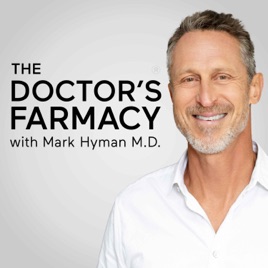
4.6
7785
956
The Doctor's Farmacy with Mark Hyman, M.D.
Dr. Mark Hyman
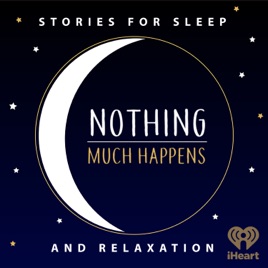
4.8
7956
288
Nothing much happens: bedtime stories to help you sleep
iHeartPodcasts

4.8
5520
531
Highest Self Podcast®
Sahara Rose
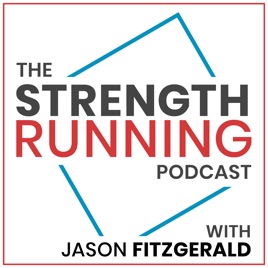
4.7
1104
339
The Strength Running Podcast
Jason Fitzgerald
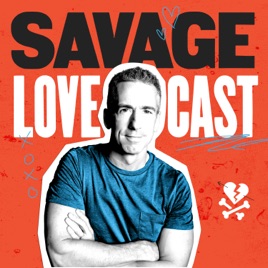
4.6
5883
52
Savage Lovecast
Dan Savage

4.5
945
764
Strictly Anonymous Confessions
Kathy Kay

4.7
4865
404
Oh No, Ross and Carrie
Ross and Carrie
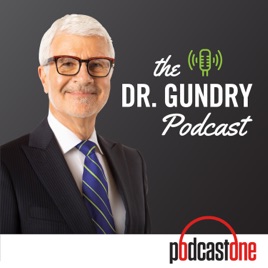
4.6
1531
368
The Dr. Gundry Podcast
PodcastOne

4.6
132
402
fit4life | fitgirl weekly chat
fit4life
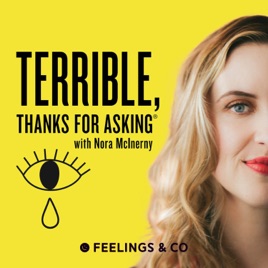
4.7
12956
296
Terrible, Thanks For Asking
Feelings & Co.



